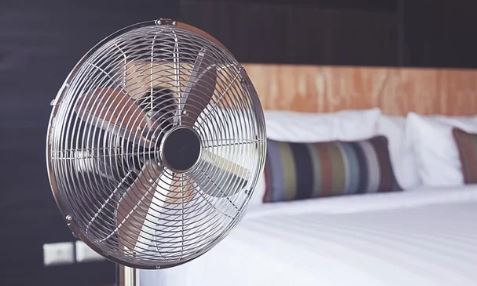Constipation is one of the most common digestive complaints. In fact, about 1 in 5 adults in the United States experience it regularly. The good news? In most cases, constipation can be managed at home with simple lifestyle changes.
What Does “Normal” Actually Mean?
Everyone’s bathroom habits are unique. While some people may go three times a day, others may only go three times a week—and both can be normal.
Doctors usually define constipation as having fewer than three bowel movements per week, but it’s not just about frequency. You may be constipated if you:
- Pass hard, dry, or lumpy stools (difficult to push out)
- Feel like you haven’t completely emptied your bowels
- Need to strain excessively
- Rely on using your hands or awkward positions to pass stool
💡 Tip: Doctors sometimes use the Bristol Stool Chart to classify stool types. Ideally, stool should be soft, smooth, and shaped like a sausage (Type 3–4). Hard pellets (Type 1–2) indicate constipation.
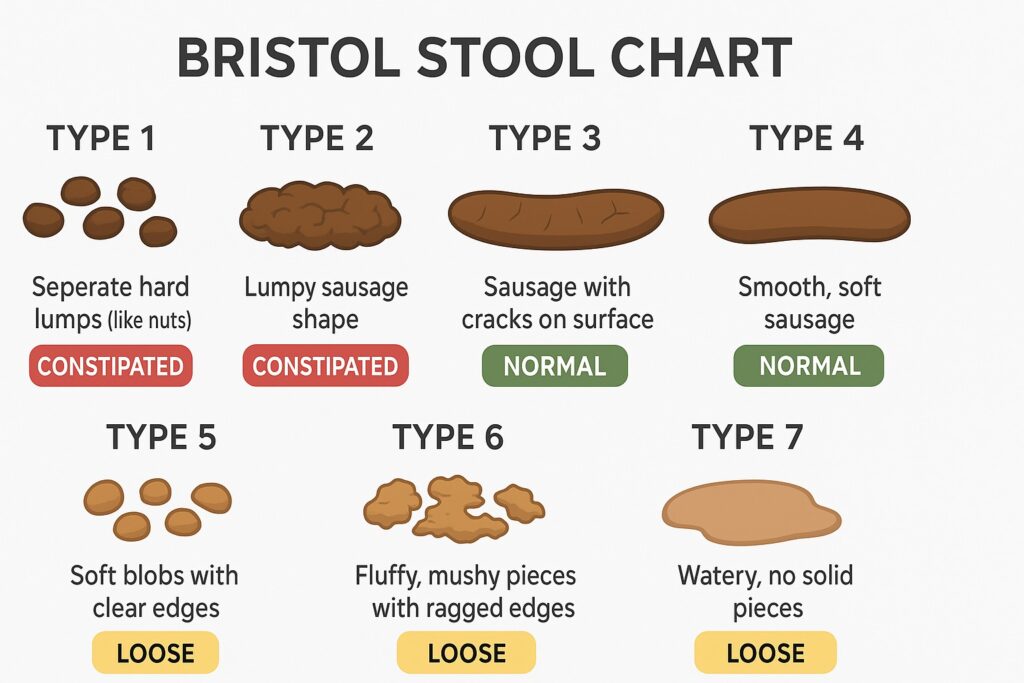
Why Does Constipation Happen?
Several factors can slow things down.
1. Daily Habits
- Low Fiber Intake: Most people get only about half the recommended fiber. Fiber adds bulk and softness, making stools easier to pass.
- Dehydration: If your body lacks water, it pulls fluid from stool, making it harder and drier.
- Lack of Movement: Sitting for long periods slows intestinal activity. Even light movement helps stimulate bowel function.
2. Medications That Can Cause Constipation
Some common culprits include:
- Pain relievers (especially opioids)
- Certain antidepressants
- Blood pressure drugs
- Iron or calcium supplements
- Some allergy medications
3. Medical Conditions
Constipation can sometimes be a sign of:
- Irritable bowel syndrome (IBS)
- Hypothyroidism (underactive thyroid)
- Diabetes
- Neurological conditions (e.g., Parkinson’s disease, multiple sclerosis)
The Laxative Trap
Over-the-counter laxatives may bring temporary relief, but using them too often can “train” your bowels to rely on them. Over time, this weakens natural bowel function.
✅ Safer approach: Use laxatives sparingly, only when necessary, and focus on long-term lifestyle strategies. Always consult your doctor before regular use.
Listening to Your Body
Ignoring the urge to go—whether because you’re busy, at work, or dislike public restrooms—can backfire. Over time, your body may suppress the natural signal, making constipation worse.
Simple Lifestyle Solutions That Work
1. Boost Your Diet
- Fiber First: Aim for 25–35 grams per day. Increase gradually to avoid gas and bloating.
- Fruits: Apples, pears, berries, prunes
- Vegetables: Leafy greens, broccoli, carrots
- Whole grains: Oats, quinoa, brown rice
- Beans, lentils, nuts, and seeds
- Hydration Matters: Aim for at least 6–8 glasses of fluids daily. Water is best, but herbal teas help too. Coffee can also stimulate bowel movements in some people.
- Gut-Friendly Foods: Probiotics (yogurt, kefir, sauerkraut, kimchi) and prebiotics (bananas, garlic, onions) can support a healthy microbiome, which plays a role in bowel regularity.
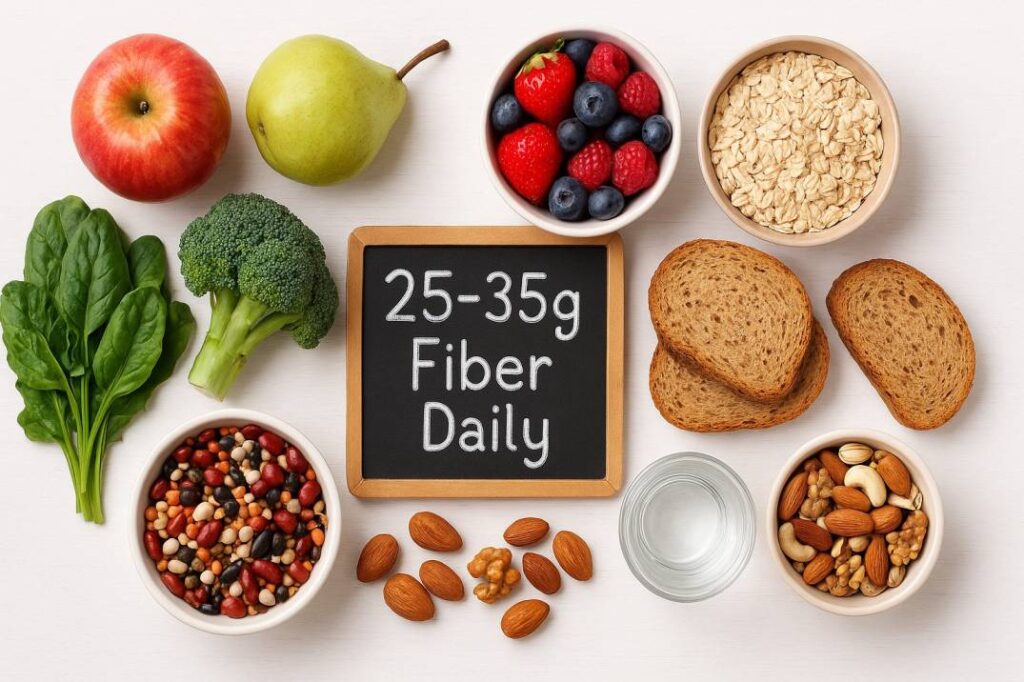
2. Move Your Body
Even gentle activity stimulates digestion. Try:
- A 15–20 minute walk after meals
- Yoga poses like Wind-Relieving Pose or Child’s Pose
- Taking stairs instead of elevators
Consistency is more important than intensity.
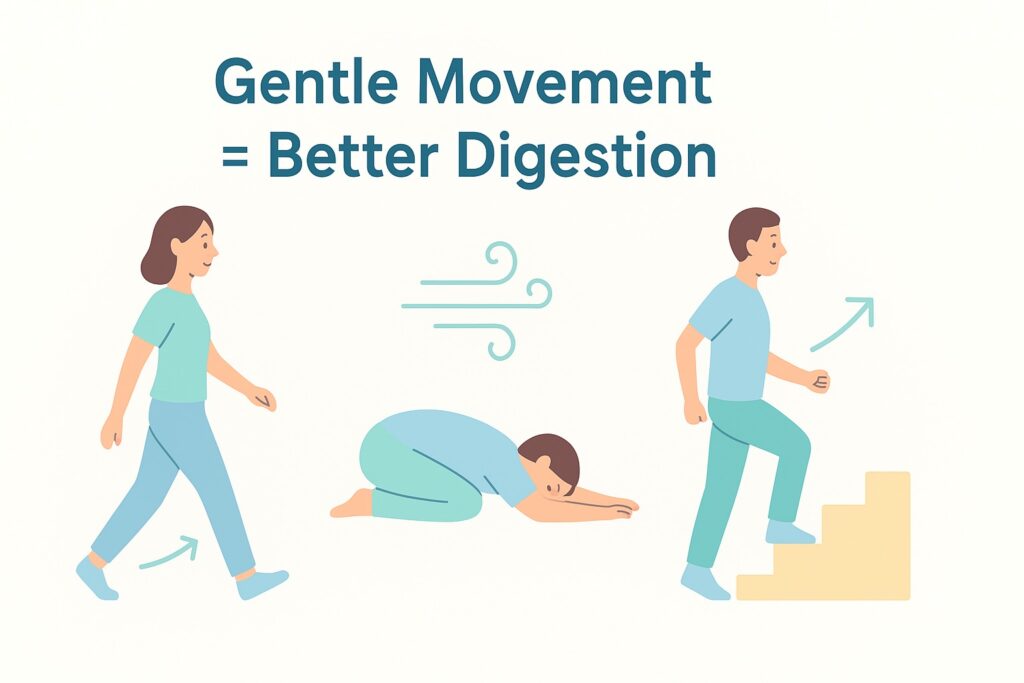
3. Better Bathroom Habits
- Go as soon as you feel the urge
- Take your time—rushing creates more strain
- Use a footstool to raise your knees slightly above your hips (similar to a squat position) for easier elimination
- Try to go at the same time daily, often after meals when your colon is most active
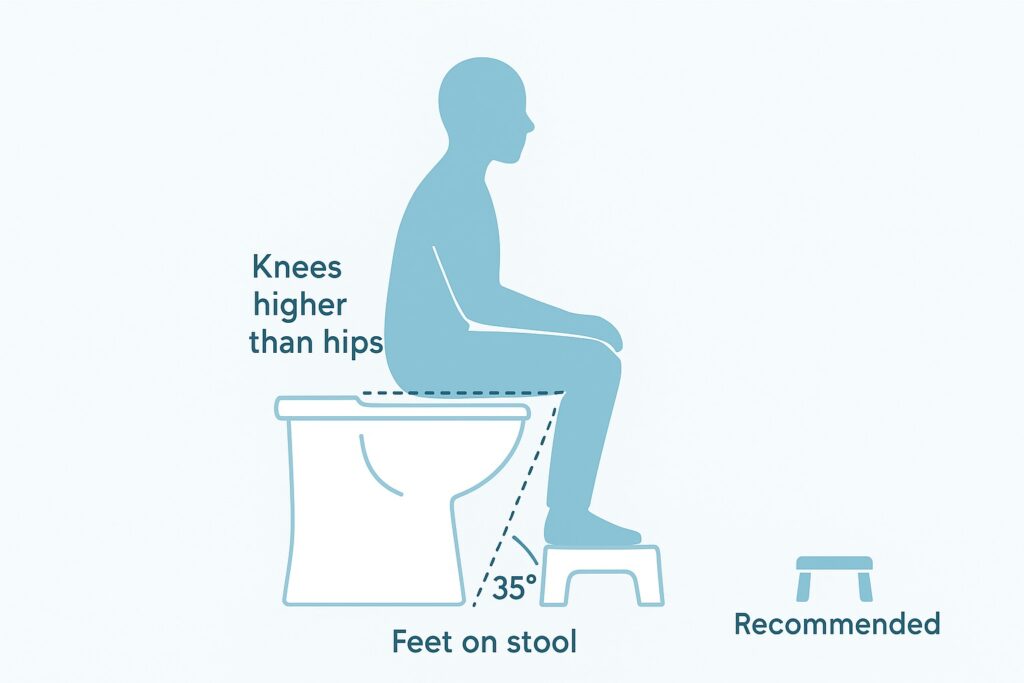
When to Call Your Doctor
Seek medical advice if you experience:
- Sudden or severe changes in bowel habits lasting more than 3 weeks
- Blood in your stool
- Severe abdominal pain or bloating
- Unexplained weight loss
- Constipation that does not improve with lifestyle changes
About 1 in 5 people with constipation eventually need medical help—so don’t hesitate to reach out.
Special Considerations
- Older Adults: Up to 60% of seniors deal with constipation. Reduced mobility, multiple medications, and slower digestion play a role.
- Pregnancy: Hormonal changes and pressure from the baby slow digestion. High-fiber foods, gentle exercise, and safe hydration strategies are usually first-line treatments (always confirm with your doctor).
- Children: Constipation is also common in kids, often due to low fiber or ignoring bathroom urges. Parents should encourage hydration, fiber, and a routine.
Building Your Action Plan
- Week 1: Focus on drinking more water.
- Week 2: Add fiber-rich foods gradually.
- Week 3: Increase daily movement.
- Week 4 and Beyond: Fine-tune based on what works best for your body.
The Bottom Line
Constipation is common—but very treatable. Most people find relief through dietary changes, hydration, exercise, and better bathroom habits. If these don’t help, or if you notice warning signs, consult a healthcare provider.
With patience and consistency, you can restore regularity and get back to feeling comfortable, light, and healthy.


